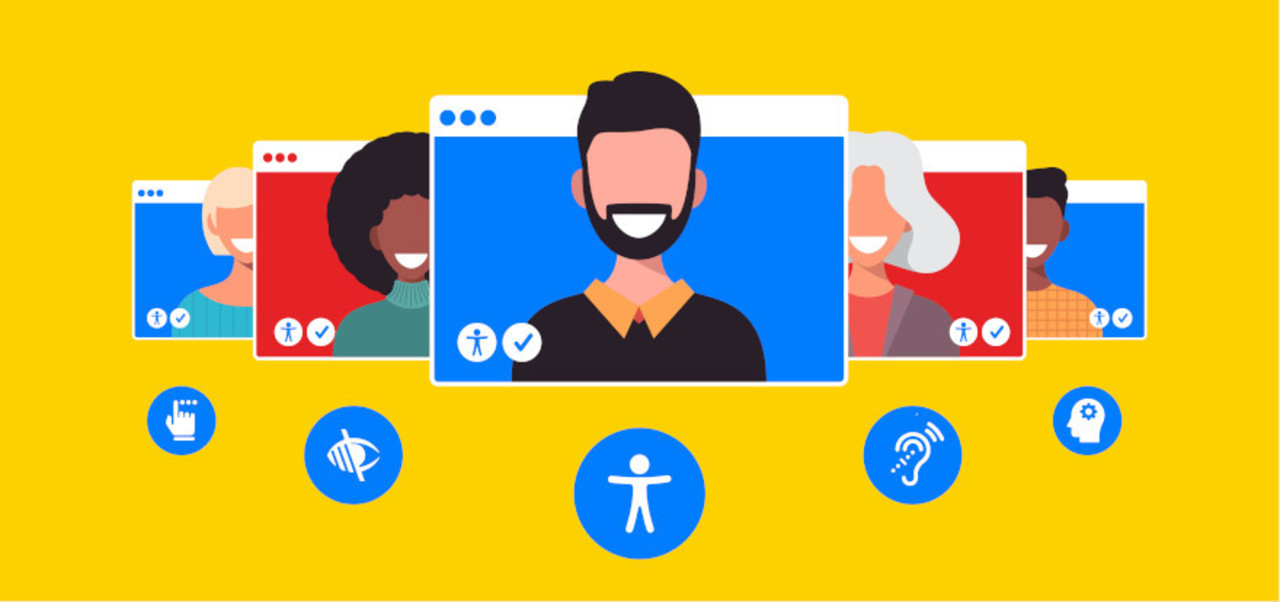Call: Getting a Grip on Polarisation
SIDN Fund is calling for proposals linked to the theme of Getting a Grip on Polarisation. Funding is available for projects involving tools and awareness/educational initiatives that improve understanding of and/or control over online polarisation. We are looking for projects that shed light on the online mechanisms behind polarisation, and for solutions capable of reinforcing positive polarisation or countering negative, toxic polarisation. We welcome proposals for both smaller pioneering projects (up to €10,000) and larger projects (up to €75,000).
Note: This call is closed, the deadline for proposals was 1 May 2023, 13:00 (CEST).
Reinforcing positive polarisation
Polarisation is a growing problem in society. When 'us-and-them' thinking goes unchecked, groups of people with opposing views move further apart. Polarisation then becomes toxic, leading to mistrust, conflict and escalation. However, polarisation is not an exclusively negative phenomenon. In a healthy democracy, a certain degree of polarisation – if based on facts and not on prejudice – can enrich the social debate.
Role of online mechanisms
The internet and social media tend to feed polarisation and the dissemination of negative messages. The Rathenau Institute's 2021 report Harmful Behaviour Online (Online Ontspoord) identified various forms of undesirable online behaviour and the internet mechanisms that reinforce them. The Hannah Arendt Institute conducted research into online polarization and published the report Digital Disconnection - When polarization goes viral (2021). A better understanding of how online factors may contribute to polarisation can provide a starting point for the development of effective ways of countering polarisation's negative effects.
Call summary
Call for proposals regarding tools and awareness/educational projects
Funding available for projects up to €75,000
Funding available for pioneering projects up to €10,000
Deadline: 1 May 2023, 13:00 (CEST)

What we are looking for
By making this call, we wish to promote innovative projects and initiatives that improve understanding of and control over online polarisation. Our aim is to counter online polarisation and/or to put in place internet mechanisms to reinforce positive polarisation, in the interests of a healthy exchange of ideas and opinions. We see healthy debate as a vehicle for promoting mutual understanding and social cohesion, and for reinforcing (instead of undermining) our democratic values. Proposals are invited both for fresh initiatives and for increasing access to existing, promising tools. Project types we're interested in:
Tools/solutions for controlling polarisation
Tools that identify or trace polarisation on the internet and help people guard against it.
Examples: Raditube, a tool that enables investigators to trace and study radical content on YouTube. Project Grey, a tool that gives social workers insight into online polarisation in their region and ways of dealing with it.
Projects that improve understanding of online mechanisms
Projects that shed light on and characterise the online mechanisms involved in polarisation on various popular and niche platforms.
Examples: digitalepolarisatie.nl, a browser extension for studying the impact of search engines on polarisation. the #BridginG research project, looking at the effect of connective mediators in online discussions.
Awareness and educational projects
Initiatives aimed at reinforcing positive polarisation online, where differences in background or beliefs are seen as opportunities for learning and cooperation. Co-creation and engagement of the target audience will be important selection criteria. Preference will also be given to projects that involve the development of materials aimed at relatively neglected groups (e.g. community centre visitors, special needs pupils, vocational secondary pupils, people in practical education, people with mild learning disabilities, etc).
Examples: Dare to be Gray (part of Detect Then Act), for detecting online hate speech and helping bystanders diffuse toxic exchanges. Filterbubbel.nl, a series of lesson plans for vocational secondary and practical education covering opinion forming/us-and-them thinking, algorithms and filter bubbles. Civinc, a chat application that connects people with contrasting views for one-to-one discussions.
Project types and funding
Proposals are invited for both smaller and larger projects. There are two application options:
Project grants up to €10,000
Available for pioneering projects, i.e. projects in the conceptualisation phase or involving a demo, pilot or experimental design.
Project grants up to €75,000
Available for larger projects involving the further development or up-scaling of promising, operational concepts with proven potential.

How to apply
Do you want to submit a proposal? Below we have listed the steps for you, from application to assessment by our experts and possible support. We look forward to your proposal!
Follow these steps
-
Stap 1
Check that your project is eligible.
Read the criteria for this call.
-
Stap 2
Not sure about something? Got a question?
Fill in our web form (in Dutch) and we'll get back to you. This is possible until 24 April 2023.
-
Stap 3
All lights on green? Submit your application!
Submit your application via our FundPro application system. Deadline is 1 May 2023, 13:00 (CEST)
The application consists of a questionnaire, short video pitch and (if you're submitting as an organisation) a Trade Register extract and annual accounts.
-
Stap 4
A number of projects will be selected, and their proposers invited to present their ideas in person to representatives of our Advisory Panel.
This is not the case for pioneering projects.
-
Stap 5
We'll tell you whether we can support your project within 3 months after the call is closed.
Criteria
You are eligible for our support if your innovative project has the potential to make an impact, and is viable beyond our funding period. It's also essential that the results of your project and the knowledge and experience you gain will be shared. The criteria below will be taken into consideration when evaluating an application.
Idea/project:
The project must serve the public interest; it must deliver added value for the community. The project must not therefore be intended to serve the interests of a particular person or a particular commercial or political organisation; it must have general social significance and impact.
Geographical scope: the project must focus on a Dutch context, and have potential added value at the European level.
A multidisciplinary approach (e.g. involving collaboration between technical personnel and psychologists, or between academics and journalists) will be viewed positively, but is not a requirement.
It is desirable for the project to have a communication vision and an impact realisation vision.
A high-quality description of the idea/project must be provided. Quality will be assessed by reference to the problem outline and the rationale given for the proposed solution.
The project must be innovative. That implies the application of an existing idea in a new context, the broadening of access to an existing, promising tool, the development of a new idea, or the application of new digital technology. The proposal must clarify the innovative aspects of the proposed project.
The project must be scalable: the underlying principle must be transferrable to larger groups of users, and the upscaling pathway must be clear. This is less applicable in relation to a pioneering project.
The project must be potentially capable of achieving long-term impact in relation to the objectives of the call. This is less applicable in relation to a pioneering project.
The project must be result-oriented. The proposal must state what steps the proposer has taken to gauge the need and demand for the project within the target group. The proposal must also identify the target group and the means by which the group is to be reached. This is less applicable in relation to a pioneering project.
The project duration must be no more than two years, or six months in the case of a pioneering project.
Proposer/team:
The proposal must be submitted by a legal entity (or a legal entity currently in formation, which will be in existence by the time of the grant award, if made). A legal entity is, for example, a foundation, an association, a cooperative, a mutual guarantee company, a public limited company, or a private limited company. A Pioneer Project forms an exception in that regard. Pioneer Project proposals may be submitted by individual persons.
The proposer must demonstrably possess the capacity and expertise to successfully undertake the project. Wherever possible, the team itself should possess the required expertise, and not be reliant upon third-party providers. Diversity within the team is desirable. It is also desirable if partners are involved in the project.
The proposer must have a strong contact network.
Does not have another project still running by SIDN Fund (or your current project is completed in July 2023).
You won't qualify for funding if your project:
Develops or improves a website or app without substantial innovation in services, functions or processes that contribute to the mission of the Fund.
Involves sponsorship or an event.
Is a standalone media production such as a podcast or video (which is not part of a larger project and/or lacks a concrete plan for dissemination and use).
Has a religious or party-political objective.
Involves structural organisational costs, operating costs and salary costs that cannot be attributed to the project.
Only impacts a single company or person, is a purely B2B proposal, or involves product development for the benefit of a single company.
Deploys innovative technology without a clear social problem or demonstrable need within a clearly defined target group (or 'technology in search of a problem').
Does not involve the active and proactive sharing of results and knowledge.
Charges commercial rates. This is critically examined in the assessment.
The call is a follow-up to earlier 'Getting a Grip on Disinformation' calls in 2021 and 2022. Through this call series, we aim to support knowledge acquisition within the Dutch context and to help counteract the negative societal impact of certain online mechanisms.
Valerie Frissen, CEO SIDN Fund

More information
If you have any questions about the call or about our application procedure after reading the information above, take a look at our frequently asked questions (in Dutch) or contact us!
